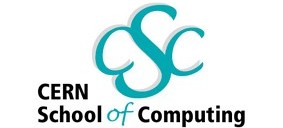|
Programme highlight
GRID Technologies
delivers unique theoretical and
hands-on education on some of
the most advanced GRID topics
Software Technologies
addresses the most relevant modern techniques and tools for large scale,
distributed software development
Physics
Computing
focuses on the particular
challenges the HEP community is facing for the LHC computing
Note: registration is for the entire programme. It is not possible to
register for one theme only.
List of lecturers

|

